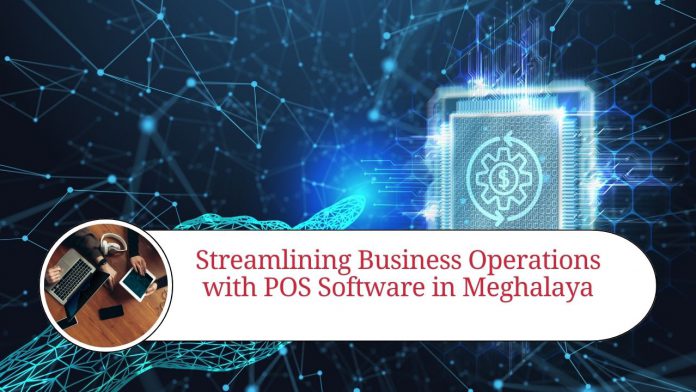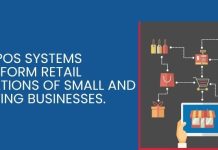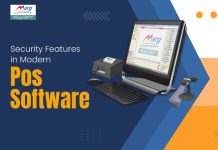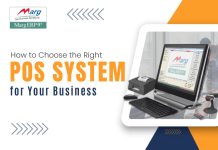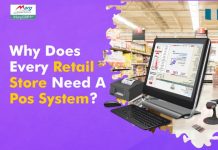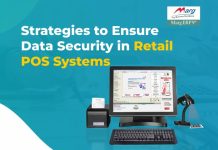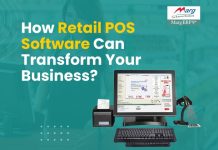POS Software in Meghalaya: Revolutionizing the Retail Industry
The retail industry in Meghalaya has seen a significant transformation over the years. With the advent of technology, the retail sector has become more streamlined, efficient, and convenient. One of the significant technological innovations that have revolutionized the retail industry is the Point of Sale (POS) software. In this blog, we will discuss what POS software is and how it is changing the retail industry in Meghalaya.
What is POS Software?
POS software is a computer program that enables retailers to manage their sales and inventory efficiently. It allows retailers to accept payments, manage inventory, track sales, and generate reports. POS software is becoming increasingly popular in Meghalaya due to its ability to streamline retail operations and improve customer service.
Benefits of POS Software in Meghalaya
- Streamlined Operations: With POS software, retailers can streamline their operations by automating various processes, such as inventory management, invoicing, and order tracking. This automation leads to increased efficiency, reduced errors, and improved accuracy.
- Improved Customer Experience: POS software allows retailers to accept multiple payment methods, including credit and debit cards, digital wallets, and cash. This variety of payment options makes the shopping experience more convenient for customers, leading to improved customer satisfaction.
- Real-Time Inventory Tracking: POS software provides retailers with real-time inventory tracking, allowing them to monitor their stock levels and reorder products when necessary. This feature reduces the risk of stock-outs and overstocking, resulting in better inventory management.
- Detailed Sales Reports: POS software generates detailed sales reports that provide retailers with insights into their business performance. Retailers can use these reports to identify their best-selling products, peak sales periods, and other critical metrics, allowing them to make informed decisions about their business.
- Cost Savings: POS software reduces the need for manual labor, leading to cost savings for retailers. It also reduces the risk of errors, leading to fewer losses due to incorrect pricing or inventory mismanagement.
Improved Inventory Management
One of the most significant advantages of POS software is its ability to manage inventory effectively. The software keeps track of inventory levels and alerts retailers when stock is running low. This feature ensures that retailers always have enough stock on hand to meet customer demand, reducing the risk of stockouts and lost sales.
Additionally, POS software provides retailers with insights into their inventory performance, allowing them to identify slow-moving items and adjust their inventory levels accordingly. This feature helps retailers optimize their inventory and reduce the risk of overstocking, which can tie up valuable capital and lead to losses.
Real-Time Sales Reporting
Another significant benefit of POS software is its ability to generate real-time sales reports. These reports provide retailers with insights into their business performance, such as top-selling products, peak sales periods, and customer buying behavior. This information can help retailers make informed decisions about their business, such as which products to stock, which promotions to offer, and when to schedule staff.
Improved Customer Service
POS software also improves customer service by allowing retailers to accept multiple payment methods, including credit and debit cards, digital wallets, and cash. This variety of payment options makes the shopping experience more convenient for customers, leading to improved customer satisfaction. Additionally, POS software allows retailers to quickly process transactions, reducing checkout times and eliminating the need for customers to wait in long lines.
Cost Savings
Finally, POS software can lead to significant cost savings for retailers. The software automates various processes, such as inventory management, invoicing, and order tracking, reducing the need for manual labor. This automation leads to increased efficiency, reduced errors, and improved accuracy, all of which contribute to lower operating costs.
Additionally, POS software reduces the risk of losses due to incorrect pricing or inventory mismanagement. This reduction in losses can have a significant impact on a retailer’s bottom line, making POS software a smart investment for businesses of all sizes.
Types of POS Software
There are several different types of POS software available in Meghalaya, each with its own set of features and benefits. Here are some of the most popular types of POS software:
- Cloud-based POS: Cloud-based POS software is hosted online and accessed through a web browser or mobile app. This type of software is popular among small and medium-sized businesses as it is typically more affordable and requires less technical expertise to set up and use.
- On-premise POS: On-premise POS software is installed on local servers and operated in-house. This type of software is typically used by larger businesses with more complex operations and higher transaction volumes.
- Mobile POS: Mobile POS software is designed for use on mobile devices, such as tablets or smartphones. This type of software is popular among businesses with mobile or pop-up locations, such as food trucks or market stalls.
- Retail POS: Retail POS software is specifically designed for use in retail environments and includes features such as inventory management, customer management, and loyalty programs.
- Restaurant POS: Restaurant POS software is designed for use in restaurants and includes features such as table management, menu customization, and order tracking.
Choosing the Right POS System
When choosing a POS system for your business, there are several key factors to consider, including:
- Cost: POS systems can vary significantly in cost, depending on the features and functionality included. Consider your budget and the return on investment (ROI) you expect to achieve when selecting a POS system.
- Scalability: Consider whether the POS system can grow and adapt with your business as it expands.
- Integration: Look for a POS system that integrates with other software and tools you use, such as accounting software or ecommerce platforms.
- Ease of use: Consider the ease of use of the POS system, as well as the level of technical expertise required to operate it.
- Customer support: Look for a POS system provider that offers reliable customer support, including technical support and training.
Conclusion
In conclusion, choosing the right POS system for your business in Meghalaya is essential for streamlining operations, improving customer service, and reducing costs. Consider the different types of POS software available and the key factors to consider when selecting a system that meets your business’s unique needs. With the right POS system in place, you can stay competitive in the market and provide your customers with the best possible shopping experience.
Other Related Blogs: Section 144B Income Tax Act

